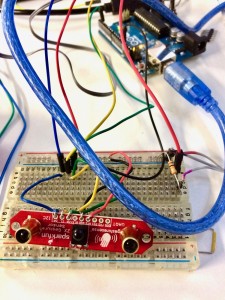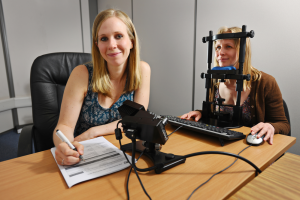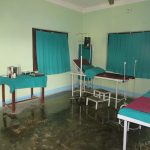There are new projects in the Student Project Bank in the following subject areas:
- Business, management and marketing
- Computing and information technology
- Games and music technology
- Media and communications
- Social studies
- Tourism, hospitality and events
Shortened briefs are listed below. Send us an email to request a full project brief and an application form.
SPB032: Create an app for Royal Bournemouth Hospital’s 2017 open day
Create an app Royal Bournemouth Hospital visitors can use to find out more about the Open Day and sign up to the different health talks, tours and activities as well as see what time activities are scheduled for.
SPB040: Impact evaluation for We Do Ethical Fashion’s annual gala event
We Do Ethical Fashion run Love Dorset, an exciting annual gala event celebrating the county’s local businesses, natural capital and people. The aim of the gala is to start a conversation about making Dorset a fairtrade county within the next 5 years. Design a method for We Do Ethical Fashion to measure the impact of their event. This will be used evaluate the impact that they are making through the annual gala event and these data will be used to improve their methods year on year.
SPB044: Crowdfunding feasibility study and campaign design for charities
Help connect millions of people to the help they need when they need it and allow millions to offer their help to those less fortunate or in need. Help-in is a charity that aims to create a new social media platform designed to increase volunteering both hands on and virtually. Carry out a feasibility study into crowdfunding models for charitable organisations and use your findings to design a three week campaign with a soft launch. There will be the opportunity to implement the campaign if desired.
SPB045: Social media marketing and management plan for a local charity
Help connect millions of people to the help they need when they need it and allow millions to offer their help to those less fortunate or in need. Help-in is a charity that aims to create a new social media platform designed to increase volunteering both hands on and virtually. Design a social media marketing plan for a crowdfunding campaign and create a management plan for the marketing plan.
SPB046: Brand development for Help-in
Help connect millions of people to the help they need when they need it and allow millions to offer their help to those less fortunate or in need. Help-in is a charity that aims to create a new social media platform designed to increase volunteering both hands on and virtually. Work with Help-in to develop their brand. This will be used to influence the look and feel of their platform and across social media, the website and any printed materials.
SPB047: Social media platform prototype development for Help-in
Help connect millions of people to the help they need when they need it and allow millions to offer their help to those less fortunate or in need. Help-in is a charity that aims to create a new social media platform designed to increase volunteering both hands on and virtually. Work with Help-in to develop the above social media platform. All aspects must be scalable to cope with additions to details, projects, tick boxes and ultimately users. The Platform will be global, so there is a need to search for companies or project types in any part of the world.

![InnovateUK_LogoA_Interim_RGBx320govuk[1]](http://blogs.bournemouth.ac.uk/research/files/2014/12/InnovateUK_LogoA_Interim_RGBx320govuk11-300x90.jpg)


















 ESRC Festival of Social Science 2024 Open Call – Deadline for Applications Thursday 16 May
ESRC Festival of Social Science 2024 Open Call – Deadline for Applications Thursday 16 May We can help promote your public engagement event or activity
We can help promote your public engagement event or activity New Seed Fund for Public Engagement with Research: Last Six Funding Opportunities Available
New Seed Fund for Public Engagement with Research: Last Six Funding Opportunities Available Congratulation on new interdisciplinary publication
Congratulation on new interdisciplinary publication BU professor speaking at Aberdeen Centre for Women’s Health Research (ACWHR)
BU professor speaking at Aberdeen Centre for Women’s Health Research (ACWHR) New seed fund for public engagement with research: open for applications
New seed fund for public engagement with research: open for applications Horizon Europe News – December 2023
Horizon Europe News – December 2023